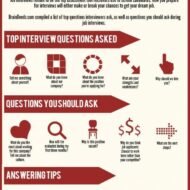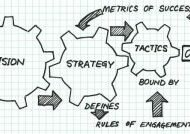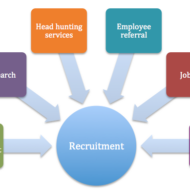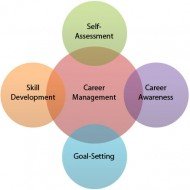Posted by Managementguru in Human Resource, Interview Questions, Strategy, Training & Development
on May 30th, 2014 | 0 comments

How Do You Answer the Job Interview Question – What is Your Greatest Strength “If you fail to prepare, then be prepared to fail”- This saying hundred percent fits the rule of the game when it comes to job interview. Spade-work is absolutely essential: – about the company in which you are seeking a position, key members involved in the making of the company, the culture and other prospects. FIQ’s of JIQ’S: Let us look at some of the common and frequently asked questions in interviews and try to understand what the interviewer expects your answer to be. Try to gauge the underlying purpose of the question in relevance to the job being applied for and please also realize the fact that interviews are acid-tests to estimate your personality as a whole; not simply your knowledge, skills and experience. What do they mean by strength? Strength is nothing but what you are good at. Say, you might be good at singing, you might be good at ballet dancing, and you might be good at even eaves-dropping! But is it a pleasant or an appreciable attribute to be discussed when it comes to your job interview? Always remember when asked about your strengths, you have to pin-point the qualities that are needed to complete the task you might be assigned for, in case you are selected. Everything in relation to the job position you are trying to acquire. Understand Employers’ Perspective and Satisfy Their Expectation: Neither be blunt nor blatant, try to give a big picture of all your experiences in the previous jobs as an impressive package and make the interviewer feel that you will definitely be an asset to the company. If it is a sales manager position, you might want to explain precisely how you completed your sales targets ahead of time, how you increased the growth rate of your company in a time-bound fashion and how you pulled your team through tough situations. If you are naturally good at communicating, no probs, but if not, it is better to have a list mentally prepared of your greatest strengths prior to an interview. By communicating, I don’t mean to say talking but making your point noted or reaching across. If you are a fresher, you have nothing to lose by being bold and assertive as it will only add to your experience. All mistakes are experiences which teach us “how not to perform a task” or “how not to behave in a particular situation”. Here is a list of the 10 most desirable traits that all employers love to see in their employees: A proven track record as an achiever…especially if your achievements match up with the employer’s greatest wants and needs. Intelligence…management “savvy”. Honesty…integrity…a decent human being. Good fit with corporate culture…someone to feel comfortable with…a team player who meshes well with interviewer’s team. Likeability…positive attitude…sense of humor. Good communication skills. Dedication…willingness to walk the extra mile to achieve excellence. Definiteness of purpose…clear goals. Enthusiasm…high level of motivation. Confident…healthy…a leader. Courtesy – http://dev.fyicenter.com Not everybody has all these qualities imbibed in them; it all lies in your expression of interest to learn those qualities which you are slightly lacking and enhance those qualities which you are already good at. It is that spark of enthusiasm makes you all different and more prospective than your competitors. With this question, the interviewer seeks to find out if: • Your strengths align with the company’s needs • You can do the job and perform like a rock star • You are the best person for the job — no need to hold out for someone better • You have...

Posted by Managementguru in Interview Questions, Resume Samples
on Apr 6th, 2014 | 0 comments

Resume for Sales Know the purpose of your resume Need help in creating or updating your resume? It certainly can be a tough task because your resume is going to be reviewed by software as well as by hiring managers. This new column brings you top resume tips for choosing a resume format, selecting a resume font, customizing your resume, using resume keywords, explaining employment gaps, and more tips for writing interview winning resumes. Try to understand that the purpose of building your resume is to land an interview and make it as precise as possible and impress the recruiters with your profile. Business and Marketing Writing A great resume is one that highlights your strengths and emphasizes the highs of your career. It is imperative for every professional to get his resume periodically updated to move up the corporate ladder. A resume has four sections: Personal Information. This includes your full name, city, contact number, e-mail address and social media profiles. Your personal information can appear at the top center part of the resume with a header positioned below it. Employment History. Your work history must be arranged beginning from current or most recent employer. It must indicate your designation, inclusive dates of employment and a description of your scope of responsibilities. Educational Attainment. This should also be arranged according to highest level of education attained. Details should include degree earned, inclusive dates and relevant awards or achievements. You do not have to include information from secondary education and earlier. Special Skills. This section is where you highlight core competencies and other skills you have that are relevant to the job opening. What are the key ingredients of a great resume? A sparkling profile with sufficient emphasis on your key strengths. A cover letter that guarantees a personal interview. Customized and tailor-made resumes. Designed by skilled resume writing experts. Professional formatting and layout. What should be there in a profile statement? Understand that highlighting your skills and experience in your profile is the “Catch Point” to impress your new recruiters. Financial Planning and Strategy, Marketing Concepts, Positioning, People Management, Territory Management, Sales Planning, Competitive Analysis, Understanding the Customer, Product Development, Client Relationships, Creative Services are some of the criteria that make a marketing/sales manager stand out from the crowd. Try to bring out the achievements in your career till date and who might be the better master to do it other than yourself! Q: What’s the most common resume mistake? A: Making too many general claims and using too much industry jargon that does not market the candidate. A resume is a marketing document designed to sell your skills and strengths rather than just portray a bio of the candidate. For unemployed candidates, handing out resumes should be a full-time job. The majority of mid- to senior-level positions are filled through networking, so contact absolutely everyone you know in addition to recruiters who are in a position to hire you or share...

Posted by Managementguru in Business Ethics, Business Management, Organisational behaviour, Principles of Management, Strategy
on Mar 23rd, 2014 | 0 comments

Tactics or Strategy – Ethical Considerations Give a man a fish everyday, his appetite is sated. Teach him how to fish; you have fulfilled his appetite for an entire life time. This is strategy. To make it work, to make the impossible, possible. There is no drawn out template for success or for that matter strategy. But both of them go together when the right strategy is used at the right time and you can bang on your target. Neither the same strategy fits the bill for everybody. Your smart approach to that particular situation backed up by your knowledge and experience does the magic. It cannot be taught, it comes from within when the situation warrants for action. It is more like “Survival of the fittest”, if you want to retain your niche in this business world you act fast and think wise. Tactics: How many of you are bold enough to think differently to make a difference, to make others feel your presence. Never implement tactics which is short lived and don’t make your presence felt either by imitation or by unethical competitor criticism. That will paint a greasy picture on your firm. That is of course strategy but cheap strategy. But always be on the run to know your competitors’ weaknesses and shortcomings which will make you improve your product or service. That is acceptable business practice where competitor spying gives us an edge in terms of identifying unexploited niches of the market. Resort to Constructive Strategies: Strategies must always be constructive and it assures success in the long run. Tactics or gimmicks will prove to be fruitful only for a short while and that is not your aim also. Will you be satisfied if you are able to sell your product or service as hot cakes only for a season! Is that going to cover your profit margin for the entire accounting year? True, strategies are always associated with making profits, boosting up the sales, for retaining the market share and maximizing the share value. But it should also make your business perennial and viable. Strategic Framework: Many of us forget that strategies are applicable in every activity of a firm that forms a compact framework which gives your business a solid foundation upon which you can build your empire of success without looking back. Right from framing your vision, mission, policies, procedures and programmes including recruitment, selection, training, evaluation and empowering your employees, strategies play their role in giving clarity and direction to the firm. Long-Term Planning: Although strategies are meant for long term planning, a periodic review and appraisal of the company’s strategies to all the employees concerned is a must to keep them informed. Strategies are secrets but not to the employees of your organization. Strategies are born out of compulsion, a compulsion to survive in the market and have an edge over others. So they must be meticulously planned after brain storming sessions and expert consultations. Sometimes even a small idea suggested by one of your employees might become the basis for a turnkey operation. So keep your eyes and ears open and also be open minded to accept ideas even from the lowest level as they are your pillars of strength and they know the pulse of the market and people better. Strategic Action Plans: Success is not a cake walk, it has to be achieved with great hardships and the taste of success will be sweeter. Strategies are formulated in every step of your business plan, remember it is an ongoing process; you have to revitalize your strategies every now and then to be in the scene, to make...

Posted by Managementguru in Business Management, Human Resource, Principles of Management, Training & Development
on Mar 22nd, 2014 | 0 comments

Popular Recruitment Channels Personnel procurement involves recruitment, selection and placement of capable employees who act as the key players in determining the success or failure of an organization. Recruitment serves the purpose of identifying and luring prospective candidates for the actual or anticipated vacancies of the organization. Recruitment is termed “positive” in that it stimulates employees to apply for jobs in organizations to increase the “hiring ratio”, that is the number of applicants for a job. Personnel Inventory: Recruitment is an extensive process that has to be dealt with care by companies as it is the first step for preparing personnel inventory that matches the criteria laid down in job specification and to select only those who are found suitable for the vacant positions. Selecting right people for the right job is very important as it ensures organizational stability and consistency. The sources of recruitment can be internal or external. Internal sources of recruitment comes in handy when you want people to understand and respond well to overall objectives of the organization which can be achieved by promotions, quite suitable for managers at the middle level and top level. Those already working for the organization will be quite familiar with the activities and requirements of the firm and a promotion would serve to boost their morale, thus resulting in improved performance coupled with commitment. External sources of recruitment may be as follows: Advertising: This method is suitable when the organization plans to expand its activities across the geographical boundaries and attract talent which is spread out. The company to reach out to a larger target group can advertise its requirements through print media, radio, television, professional and technical journals. This is a popular way of recruitment as the response ratio is quite on the higher side when compared to any other source of recruitment. Employment exchanges: The unemployed personnel register their names and qualifications in the exchanges and special employment exchange sources are organized for ex-military personnel, physically handicapped and professionals in different places. It is really a matter of concern that a major percentage of youth prefer only white collar jobs and they rate other blue collar jobs and self employment opportunities a step lower. This attitude should change as there will be no permanent jobs existing in the future but only projects. Eventually people will be shifting between various projects and at the end of the day, whether they derive any satisfaction or a feeling of cherishment about their job or work will become a big question mark. Schools and colleges: These are excellent sources of external recruitment as corporate companies offer good placement opportunities to students studying in business schools and other engineering and professional institutions even before the completion of their degree and students should aim to acquire admission in reputed educational institutions as it increases the chance of confirmed placement. Popular software and engineering companies want the best talent in the industry and the benefit of hiring freshers is that they can be well trained and molded as per their job requirements. Trade unions: In firms where trade unions are effective, the management looks up to the union in their recruitment efforts. It makes possible good labor relations. Advantages of recruiting from outside the company: Employees from varied background with broad experience add value to the company The new employees can infuse fresh ideas that may prove fruitful. Strategic Principles of recruitment: Employ the best qualified person for each job Retain the most promising ones Offer promising careers and security Provide opportunity for empowerment Be competitive with public policies Provide facilities for personal growth on skill and knowledge. Other Sources: Other sources...

Posted by Managementguru in Change management, Human Resource
on Feb 28th, 2014 | 0 comments

Career Management How to go about Career Management? Career Management is very essential which facilitates smooth transitions from one level to the next higher level in a profession. You cannot decide what to do unless you know what you are going to do or where you want to be tomorrow. Long term personal goals and professional goals are elemental in setting overall targets. According to Stephen P.Robbins, career is “a sequence of life positions occupied by a person during the course of a lifetime. Setting Goals for an Effective Career Your goals may be Long term Short term Personal or Professional Consider if you are goals are Realistic Whether you possess the skill set Achievable within the set time limit (duration) Based on these goals it is important to make long term and short term career plans. Also write down your Experience Skills and Qualification All these basic but vital things will give you a clear picture as to where you stand and what has to be done to improve your skills. Pic Courtesy: Cupcakes and Cashmere EYE Openers While Setting Personal Career Targets A. What do you want to accomplish from two or three years from now? B. What developments and knowledge can make this possible? C. How do you want to prepare yourself to achieve these targets or in what way you want to improve your skills? D. Is there a necessity for check points in the middle of the progress to make the necessary revisions? Tips to Manage Diversifying Careers Adaptability and flexibility are vital to reduce the stress of redundancy. Anticipate the changes and be prepared for anything at any time Look at the ‘Job Loss’ as an opportunity to pursue a new career that interests you. Career Planning A career will be satisfactory only when it interests the person and provides challenge and not by mere compensation or reward. Each organization should plan and help the individual, but every individual should take interest in his career. Career planning entails evaluating abilities and interests and considering alternative career development activities. The process results in Decisions to enter a certain occupation Join a particular organization Accept or decline new job opportunities{relocations, promotions or transfers} Leave an organization for another job or recruitment. Effects of Career Planning In corporate companies, a typical career planning program might include 1. Career counseling by members of the HR department 2. Workshops to help employees evaluate their skills, abilities, and interests to decide on their career development plans 3. Self directed programs to help the workforce guide their own careers through self-assessment and 4. Communication of job opportunities through job postings, videotapes and publications. One has to remember that career counseling may increase the pressure for managers and in turn the organization, as employees either become anxious about their present level of performance and chances for career advancement or they might use the opportunity to demand more from the firm in terms of pay, promotions etc., Key Career Issues of Employees Dual-career couples: When both husband and wife work, their earnings and stress are in surplus Stressors: Children under the age of six need parental care , but the amount of quality time of parents with that of the children is not at all balanced and this causes a heavy stress for both sides emotionally. Work schedule stressors: This increases as a person rises in an organization, job demands increase, with long hours of work and travel, but little time for family and vacation. Relocation: The increase in the number of dual career couple poses problems for many companies when they try to relocate...









